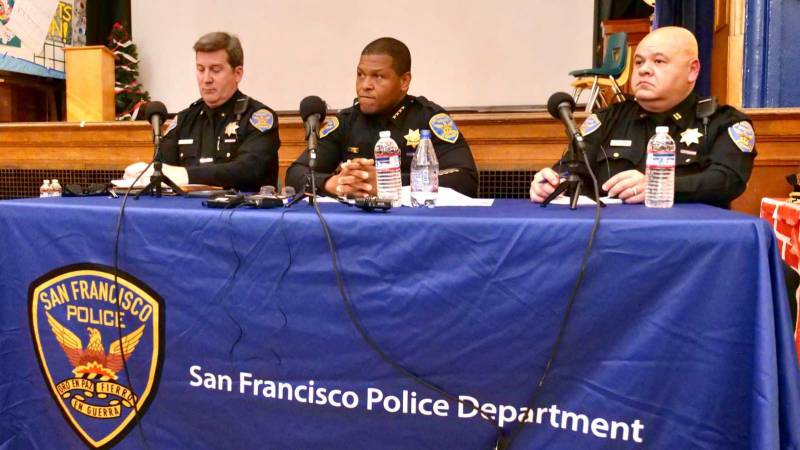“Uncommon rights and lengthy arbitration, then appeals, make it extremely difficult to terminate an employee who exhibits abhorrent behavior,” Pridgen said.
“Police chiefs should be provided the latitude in statute to summarily terminate an officer for an egregious use of excessive force that violates policy or meets the elements of criminal statute. The officer would be afforded their due process during a formal appeal and a full evidentiary hearing post-discipline,” he said.
Three large police unions called for systemic national change this week saying that even officers accused of egregious criminal acts are entitled to due process.
But they said they are open to discussing how a new approach could work alongside their call for a national database of officers fired for gross misconduct, an early warning system to spot officers who need more training, in addition to ongoing training and a use-of-force policy modeled on new California laws intended to deter slayings.
“We also believe a much more effective way to prevent problem officers from being hired at different departments is by requiring all law enforcement agencies to mandate that applicants sign over full access to their entire personnel record for review,” the San Jose Police Officers Association, San Francisco Police Officers Association and Los Angeles Police Protective League said in a joint statement.
As part of that recommendation, they said internal investigation reports should go into officers’ files even if they retire or move to other departments.
The chiefs also called for broadening California law to permit publicizing the disciplinary records of any officer who is fired for any reason.
A law that took effect last year allows disclosure only when officers are found to have improperly used force or discharged firearms, committed sexual assaults on the job, or been dishonest in official duties.
“Our efforts to bolster community trust are undermined when we are prohibited from sharing disciplinary results with our communities. This is shocking to some who come to California from other states where public disclosure of all discipline is routine,” Pridgen said.
“To buoy trust, departments should be empowered to divulge all discipline resulting in termination once administrative appeals have been exhausted.”
Pridgen is also vice president of the California Police Chiefs Association. But the Black chiefs’ proposals went beyond the larger organization’s call Thursday for stripping away officers’ training certifications after due-process proceedings if they break the law or have a history of egregious misconduct.
The eight chiefs were joined by three ranking officers from departments in Oakland, Fremont and Alameda County and by Assemblyman Jim Cooper, a Black former Sacramento County sheriff’s deputy. The other chiefs came from Piedmont, Guadalupe, Napa, Tracy and Hayward.
Cooper did not immediately support the group’s proposals.
“It’s too early to say,” Cooper said after the event, noting that “the devil is in the details.”
Assemblyman Kevin McCarty, a fellow Democrat from Sacramento who is sponsoring two police oversight bills, said in a statement: “It is powerful to see police chiefs stepping up and supporting the necessary policy changes to increase accountability and transparency.”

